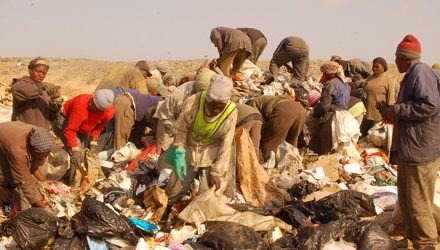
Global African Hydrogen Summit harnessing Africa’s green resources for a just, fair and inclusive economic transition

By Lavina Naidoo, Pulse Communications Account Executive.
As the world grapples with the urgent need to address climate change and shift towards sustainable energy solutions, Africa stands poised to play a pivotal role in the global transition. By leveraging its abundant green and renewable natural resources, the continent can not only support a just transition to cleaner sources of energy but can also build inclusive and fair economies, end energy poverty, and contribute significantly to global decarbonisation efforts.
Africa is endowed with vast renewable energy potential, including solar, wind, hydro, and geothermal resources. These resources, if harnessed effectively, can power the continent’s development and provide a sustainable energy future. The African Union’s Agenda 2063 emphasises the need for transformative growth that is inclusive and environmentally sustainable. By investing in renewable energy infrastructure, African nations can reduce their dependency on hydrocarbons, decrease greenhouse gas emissions, and foster economic growth that benefits all segments of society.
The inaugural Global African Hydrogen Summit scheduled from 3 to 5 September in Windhoek will support strategies to meet energy demand across the continent through a just and inclusive economic transition that contributes significantly to global decarbonisation efforts.
Director at energy.com.na, William Shilamba in a recent documentary about the Summit said the promise of a better tomorrow for Namibia’s children especially for those in the smaller communities that are less privileged.
A just transition in Africa requires policies and investments that ensure all communities benefit from the green economy. By fostering local entrepreneurship, hydrogen can drive economic growth that benefits all segments of society. Key levers to support such development include job creation, skills development, fair labour practices, capacity building, and technology transfer.
With the right strategies, Africa can avoid the pitfalls of inequality that have plagued other energy transitions worldwide. Inclusive initiatives that the Summit has been actively advocating include women empowerment, youth engagement, community outreach as well as championing MSMEs and Startups.
In the same docufilm entitled, ‘The Road to Namibia’, recently aired on NBC television, Head of Environmental, Social and Governance (ESG) at Hyphen Hydrogen Energy Toni Beukes said she is responsible for looking after the socio-economic development component of the project, which is all to do with how Namibian’s will benefit.
The Global African Hydrogen Summit embodies the objective to facilitate collaboration and partnerships between African nations and international stakeholders, including governments and private sector entities.
However, achieving a just, fair and inclusive economic transition for all must include active involvement from often marginalised and overlooked representatives from across civil society including women, the youth, and rural communities. “These groups deserve a seat at the table and a voice in the dialogue to ensure that collaboration and engagement efforts are to be holistically inclusive, leaving no one behind.”
















































